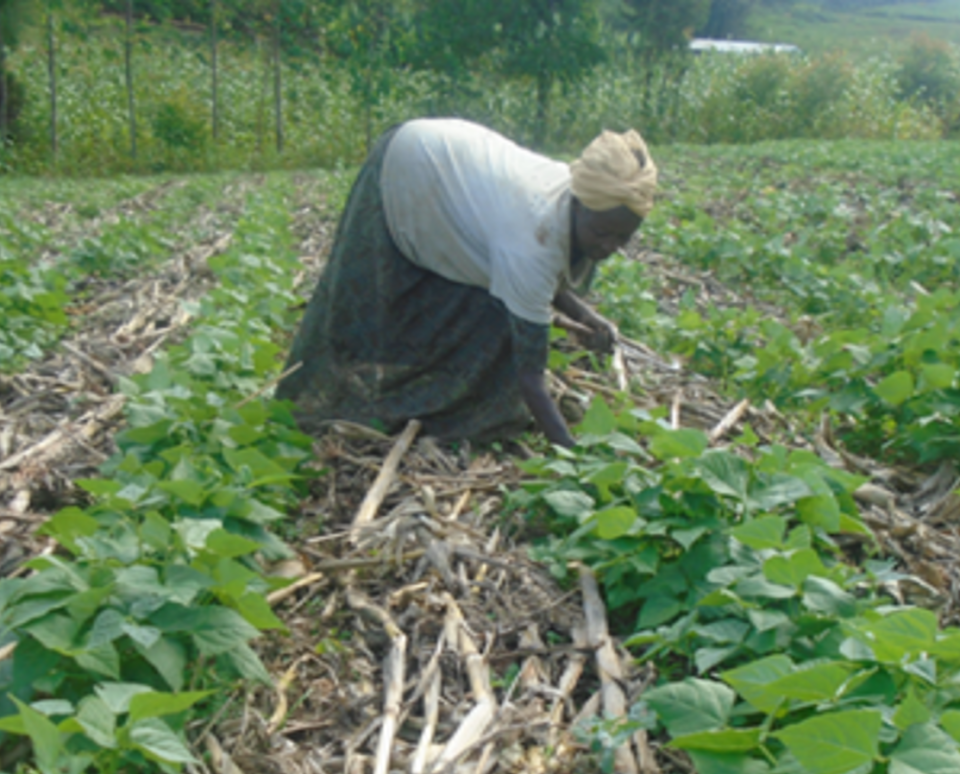
Crop production was declining in the project area. Smallholder farmers could not produce sufficient food for their consumption.
Farms in the highlands were increasingly depleted of soil organic matter. Lack of nutrients became a limiting factor for production.
The farmers in the lowland and midland areas were challenged by climate change effects like drought. This led to crop failure due to moisture stress.
The solution was to introduce conservation agriculture (CA) practices. These include minimum tillage, crop rotation, intercropping and mulching. CA increases the organic matter and nutrient content as well as the water retention of the soils.
The project started by recruiting community animators promoting the concept of CA and selecting volunteer households who could avail plots for field trials. Knowledge and skill trainings on CA principles and experience-sharing visits were conducted.
Each lead farmer was expected to recruit new farmers per year, thus 1600 farmers (31% female) were reached by end of the project. The local government picked interest and requested for training of officers on CA.
The positive impacts of the practice on crop production, soil fertility and socio-economic factors were scientifically assessed by Arba Minch University throughout the project.
The development organisation SCORE, founded in 1972, works under the Social and Development Commission of the Vicariate of Soddo. The organisation works with an integrated community-based development approach.